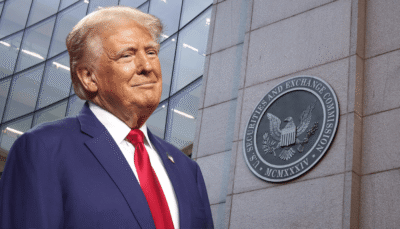The Kingdom of Bhutan is looking to cryptocurrency as a tool to revitalize its tourism sector and modernize its economy.
Speaking during Binance’s Crypto-Powered Tour in Bhutan, Damcho Rinzin, Director of the Department of Tourism, explained that outdated payment systems have long been a stumbling block for the country’s efforts to attract international visitors.
“Tourists told us that wire transfers feel like a thing of the past,” Rinzin said, describing how clunky banking infrastructure can create friction and deter travelers.
To address the issue, Bhutan has partnered with Binance Pay and DK Bank, enabling tourists to pay for hotels, restaurants, and activities using digital assets. As of May, nearly 1,000 merchants across the country have been onboarded to accept crypto payments.
The move comes as Bhutan faces pressure to diversify its economy and tap into new revenue streams. With younger generations of tourists increasingly expecting seamless digital experiences, officials hope crypto integration will help the nation stand out among destinations in Asia.
Welcoming the Next Wave of Global Visitors
Beyond convenience, Bhutan’s embrace of crypto is part of a deliberate strategy to project an image of openness and forward thinking.
“This sends a very strong message that Bhutan is welcoming,” Rinzin told the audience, emphasizing that the initiative is as much about branding as it is about infrastructure.
By incorporating crypto payments, officials believe Bhutan can appeal to a new demographic of travelers—young, tech-savvy explorers who value innovation and are likely to share their experiences online.
Rinzin set a modest initial target of attracting 300,000 crypto-enabled visitors annually, arguing that even capturing a small share of Binance’s massive user base could meaningfully boost the local economy.
He also highlighted the cost advantages of digital assets over traditional payments, noting that near-instant transactions with lower fees can help both merchants and tourists avoid the delays and expenses associated with wire transfers and foreign exchange.
“Opening the doors to crypto means opening Bhutan to a different kind of tourist,” Rinzin said.
“People who are forward-looking, people who appreciate our sustainable and mindful tourism vision.”
Integrating Crypto Into Bhutan’s Evolving Identity
Carissa Nimah, Chief Marketing Officer of the Department of Tourism, echoed these sentiments in a separate roundtable with journalists, describing crypto adoption as part of Bhutan’s broader transformation.
“Bhutan has always been traditional and authentic,” Nimah said.
“But we are also focused and visionary.”
She noted that embracing blockchain aligns with the Kingdom’s efforts to position itself as a destination that blends heritage with modernity.
One high-profile example is the Gelephu Mindfulness City, an ambitious project aimed at creating a hub for wellness and sustainable development along Bhutan’s southern border. Officials believe crypto payment systems could help support this vision by enabling visitors to engage with local businesses and services in more flexible ways.
“I think this will play a very large part in the Gelephu Mindfulness City,” Nimah said, adding that the project is designed to attract travelers who want to explore the world using digital assets.
However, despite the enthusiasm, local adoption remains in its early stages. Several merchants enrolled in the Binance Pay program told reporters they have yet to see significant numbers of customers paying with crypto.
Quick Facts
- Bhutan has partnered with Binance Pay and DK Bank to roll out crypto payments across 1,000 merchants.
- Officials see the initiative as both a modernization effort and a branding strategy.
- The government hopes to attract 300,000 crypto-using tourists annually to support its evolving economy.





